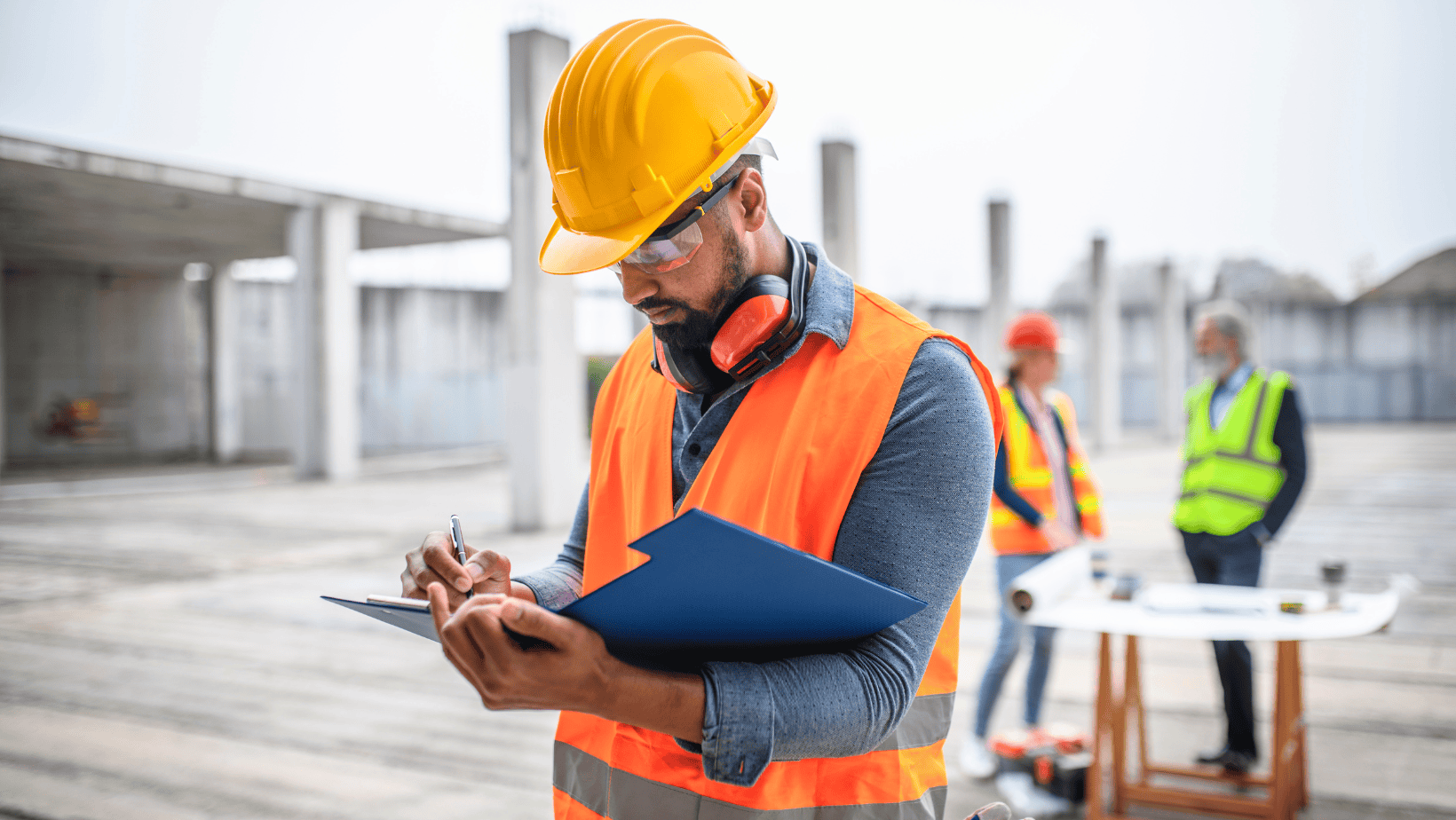Revolutionize Your Construction Business: Implement These 4 Cutting-Edge Technology Advances
Nathan Arant
January 30, 2023
5 minute read

In this article, we’ll delve into the latest technological advancements in the construction industry. From Augmented Reality (AR) and Virtual Reality (VR) that enhance the construction experience for both workers and clients, to cloud-based construction software and mobile apps that streamline processes and improve project management. We’ll also look at the impact of artificial intelligence (AI) on the industry, including how it optimizes worker productivity and the use of construction progress monitoring robots. Finally, we’ll discuss how the integration of robotics into construction is automating repetitive tasks and enhancing efficiency while improving job satisfaction for workers.
1: AR/VR
Augmented Reality (AR) enhances the physical environment with computer-generated data, while Virtual Reality (VR) creates a completely digital reality that replaces the existing environment.
AR technology is valuable for modern construction as it allows customers to see the design in their home through a mobile device or tablet, and for workers to “see through walls” with AI-powered “Smart Helmets”.
VR is useful in pre-construction, allowing customers to immerse themselves in the future plan, and both AR/VR can be incorporated into staff training programs for safety. The construction industry is considered one of the most dangerous, with workplace fatalities on the rise, making it crucial for construction businesses to improve safety measures.
In the coming years, AR/VR in construction will experience significant growth. VR provides a safe way for workers to experience dangerous or confined spaces during training, while AR can be used to improve safety on the construction site itself. Access to VR/AR technologies, such as a smartphone and the right app, is essential for workers to take advantage of these advancements in safety.
2: Software and Mobile App Solutions
Construction projects often face challenges in meeting deadlines and staying within budget.
A report by McKinsey & Company found that construction projects take 20% longer than planned and go 80% over budget, due to a lack of digitization in the industry. To combat these issues, many companies are turning to cloud-based construction software.
This software allows all project stakeholders to access up-to-date information from their own devices, and workers can submit time cards, RFIs, and expense reports on-site, increasing accuracy and efficiency. The cloud-based technology also saves time by automatically organizing information.
When choosing construction software, it’s important to consider features such as real-time stakeholder connection, accurate estimates and reports, progress tracking, and precise invoicing. The right software solution should store all project information in a single centralized repository, and provide transparency to clients.
Cloud-based construction management software can help companies take their business to the next level by streamlining processes and reducing costs. It’s essential to choose a solution that meets the specific needs of your business and supports different stages of a project.
3: Artificial Intelligence
If you’re looking to improve worker productivity on your construction site, you should consider using artificial intelligence (AI).
By tracking worker movements and analyzing data, you can learn how to optimize the placement of materials and equipment, making it easier for workers to access the tools they need, reducing downtime, and improving productivity.
Using data collected and
analyzed by AI
or machine learning can help improve your construction company’s workflow, giving you a competitive advantage in the market. You can use this data to predict the outcome of future projects and to identify and correct errors before they become expensive problems. Thanks to AI, you can streamline your process and make your company more efficient and effective.
Construction companies have been using artificial intelligence pretty extensively in recent years. Robotics is another area where AI is used extensively, through construction progress monitoring robots that use real-time data to perform specific actions and increase productivity.
In addition, Microsoft has added its Content AI platform, Syntex to enhance document processing. This gives businesses better optics into their data along with faster processing of information through automation. This makes the management of large amounts of construction data easier, helping businesses make informed decisions based on accurate and up-to-date information.
4: Automating Repetitive Tasks with Robotics
Construction sites and fabrication processes are increasingly relying on robots to streamline and automate repetitive tasks.
Despite fears that robots may take over human jobs, the truth is that robots are designed to assist and make work more efficient, safe, and fast. While robots excel at tasks such as cutting, palletizing, and bricklaying, they still cannot perform every task with precision and require human oversight.
Construction workers will continue to play a vital role, as they are better equipped to handle tasks that require creativity, problem-solving, and manual dexterity. With robots handling repetitive tasks, construction workers can focus on the more complex and challenging parts of the job, making their work easier and more fulfilling. Overall, the integration of robots into the construction industry will help enhance efficiency and improve job satisfaction for construction workers.
The
construction industry is seeing significant advancements in technology
that is transforming the way we build, manage and maintain infrastructure. From AR/VR, to cloud-based software and mobile app solutions, to AI and robotics, these innovations are making construction more efficient, cost-effective, and safer.
If you’re interested in learning more about how these technologies can benefit your construction business, we invite you to
meet with one of our Senior Account Executives for a personal consultation
and to review some of our successful case studies. We can also schedule a workshop to help you understand the full potential of these technologies. Take the first step towards a more efficient and innovative construction future today!



